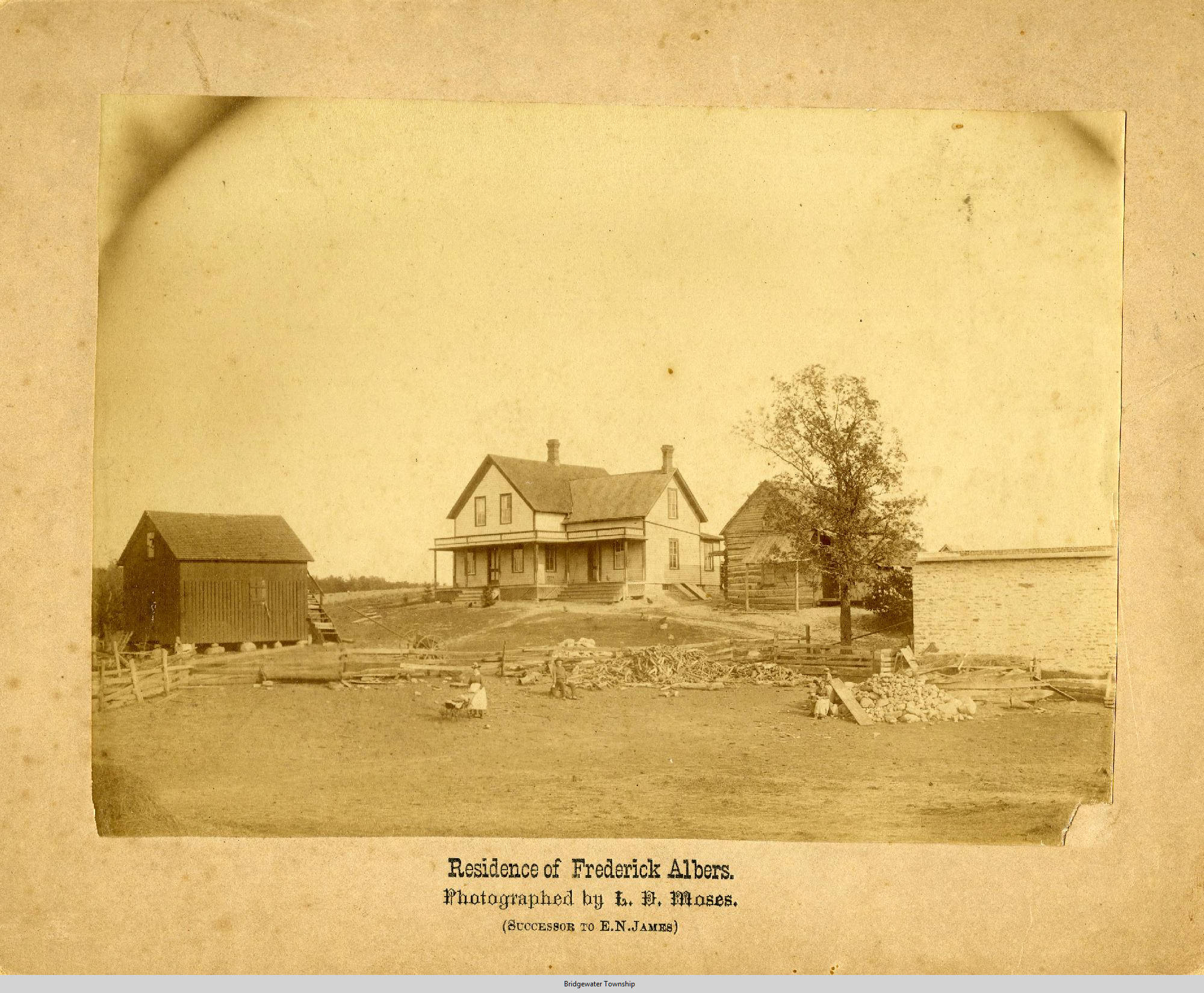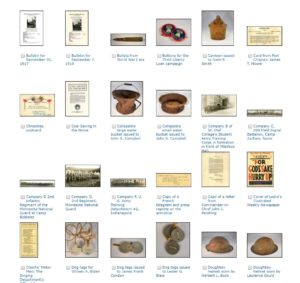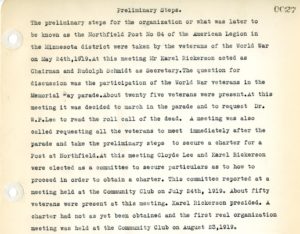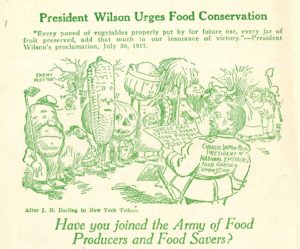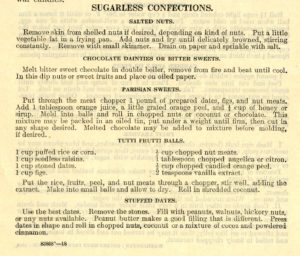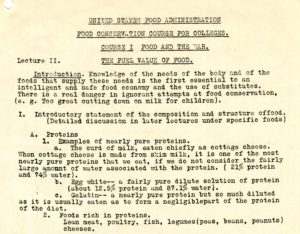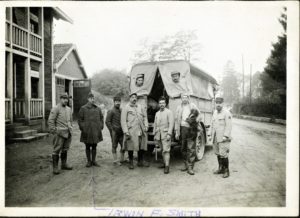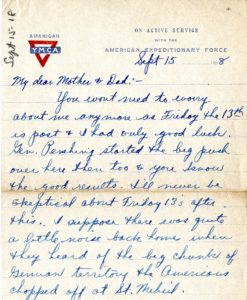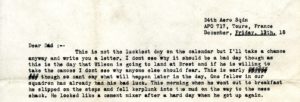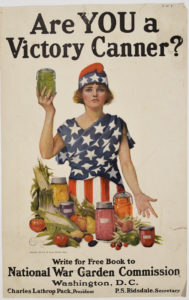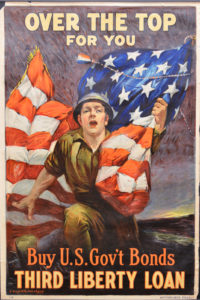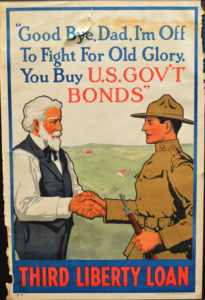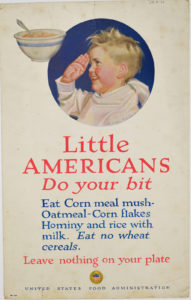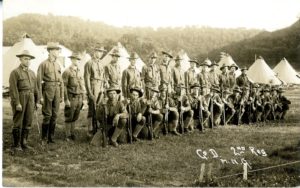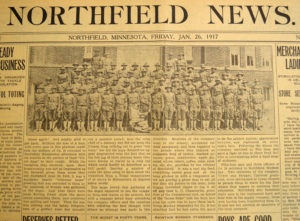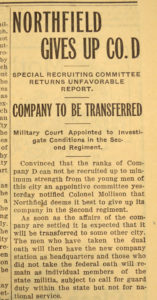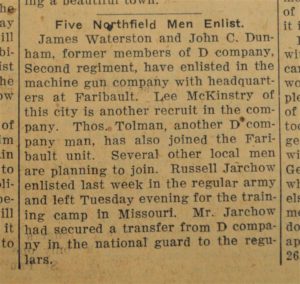In my previous posts, I have highlighted some interesting archival documents that tell stories of Northfield experiences during World War I both at home and abroad. Today, I’ll provide more examples of community organizations that arose during and after the war.
Entertainment at the home front was militarized for a short time during the war. You can see evidence of it in the formation of the Dundas Band and Military Company. Prior to 1917, the Dundas Military Company and the Dundas Brass Band existed separately. The two organizations merged on July 9, 1917 to become one organization with two related departments. The band existed to provide entertainment at dances and other community events, and the military company provided military training to men of draft age prior to their entry into the armed forces.
This organization was community-minded, too. They charged a fee for renting their hall, but would omit or lower the fee if the event were to be a fundraiser for patriotic organizations like the Red Cross. Music and dancing helped raise morale and encourage patriotism throughout a community, things that are essential for community-wide support for a total war like World War I. Once the United States was no longer in an actual state of war following the signing of the Paris Peace Treaty in 1919, the military division was permanently disbanded. The band, however, continued well into the 1930s to provide musical entertainment during peacetime.
Whether Northfielders served their country near or far, their wartime experiences shaped the rest of their lives. When the soldiers returned home, what could they do to process the changes they went through in a relatively short amount of time? Many chose to join together to form a post for the new national organization, the American Legion. The National Organization of the American Legion was formed in 1919 with this as the preamble to their constitution:
to uphold the constitution of the United States; to foster and perpetuate a one hundred percent Americanism; to preserve the memories and incidents of [their] association in the Great War; to inculcate a sense of individual obligation to the community, state, and nation; to make right the master of might; to promote peace and goodwill on earth; to safeguard and transmit to posterity the principles of justice, freedom, and democracy; [and] to consecrate and sanctify [their] comradeship by [their] devotion to mutual helpfulness.
Members of Northfield’s Post 84 strived to live up to these ideals from the start. They reprinted this preamble in their official history on the very first page chronicling their history (page 26).
We are fortunate that Northfield’s Post 84 had an able and committed post historian, E. T. Tufte, for its early years because he documented the formation, development, and community activities of the post in two volumes of typed histories. He also included draft lists and names of the men and women of the Northfield area who served in World War I in general, not only those who later became members of the Post.
The NHS is grateful to members of the post who made these American Legion histories available for scanning and sharing online, because they are amazing resources that tell great stories of Northfield’s veterans and the community at large.
Whether one served the country during World War I abroad or here at home, everyone was affected in some way by wartime activities. It is my hope that the materials preserved and available online can help us understand what life was like for Northfielders during this tumultuous time by providing fascinating details about their individual and collective experiences.
View all of the items digitized for this project here.

